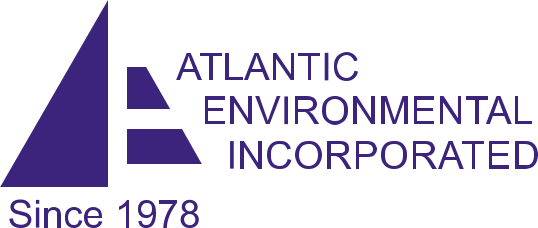If you need isocyanates (TDI, MDI, HDI) testing and sampling as discussed in this article call us at 973-366-4660 or email us at info@atlenv.com for details and a free estimate.
Written By: Henry P. Shotwell, Ph.D., CIH and Robert E. Sheriff MS, CIH, CSP, President
April 5, 2020; Updated August 2021
Hazards of Isocyanates (TDI, MDI, HDI) In Resins, Coatings, and Paints
Polyurethanes are polymers that are formed by reacting an isocyanate, like Toluene DiIsocyanate (TDI), Methylene Bisphenyl Isocyanate (MDI) or Hexamethylene Di Isocyanate (HMDI) (also referred to as HDI) and alcohol. These polymers are used to make foam padding for mattresses and seat cushions, gaskets and seals, adhesives, paints, surface coatings, and sealants and synthetic fibers like Spandex®. The effort to reduce or eliminate solvent in paints and coating has led to a problem with isocyanates. Isocyanates cause a polymerization rather than a solvent drying process, which can result in health problems of its own. This sadly is trading one problem (solvents) with another (isocyanates).
Isocyanates can be aromatic, like TDI and MDI, or aliphatic like HDI. The aromatic isocyanates (TDI and MDI) are more reactive and more economical to use than aliphatic HDI. Depending on the type of isocyanate, the type of alcohol, catalysts and other additives used, a wide variety of products can be formed such as those mentioned above.
A fully reacted polyurethane is chemically inert and contact with it will not produce harmful effects. What this means is that if the mixture of the resin and isocyanate are blended properly, all the isocyanate is reacted and no residual should exist which ultimately means no isocyanate exposure should exist. In most situations this is the case, but not for all situations. Polyurethanes are combustible as well, and will ignite if exposed to open flame, which produces carbon monoxide and other emissions products in the process. The isocyanates (TDI, MDI, and HDI) are well-known skin and respiratory sensitizers and irritants. TDI is considered to be a carcinogen by NIOSH.
The first step in dealing with isocyanates is to monitor the worker’s exposure to them. Workers who are engaged in the production of polyurethane polymers and who have potential exposures to the liquid resin and isocyanate ingredients need to use the engineering controls, personal protective equipment and good hygiene practices specified by manufacturers and by Safety Data Sheets (SDS).
OSHA has set a ceiling limit for MDI (Methylene Bisphenyl Isocyanate) at 0.02ppm and a ceiling limit for TDI (TolueneDiIsocyanate) at 0.02ppm – See 29 CFR 1910.1000 Table Z1 at http://www.osha.gov/law-regs.html.
The Real Danger
The real danger and hazards of isocyanates are that a small percentage of people develop a respiratory sensitivity to them which results is a severe asthmatic reaction. Once sensitized, the individual will have asthmatic reactions at extremely low levels of airborne isocyanates, so much so that they generally can’t work around them at all. Some people are so sensitive to isocyanates that entering a paint store or an auto garage will trigger a reaction.
The testing for isocyanate is well within our capabilities and includes years of sampling and assisting in reducing or eliminating isocyanate exposure.
Contact us for a free quote regarding Hazards of Isocyanates (TDI, MDI, HDI) In Resins, Coatings and Paints testing and sampling.
If interested in further information, call us at 973-366-4660, e-mail us at info@atlenv.com or fill out our contact form – Atlantic Environmental.
Our primary service areas are New Jersey NJ, New York NY, (New York City), Pennsylvania PA, Connecticut CT, Delaware DE, Massachusetts, (Boston) MA, Rhode Island RI, Washington DC, Wisconsin WI, Maryland MD, Michigan MI, Illinois (Chicago) IL, Virginia VA, Indiana IN, Georgia (Atlanta) GA, Alabama AL, North Carolina NC, South Carolina SC, Tennessee TN, Texas (Dallas, Ft Worth) TX, Oklahoma OK, DC, Arkansas AR, Florida FL. We can service most other areas of the U.S. but additional travel charges will be applied.



